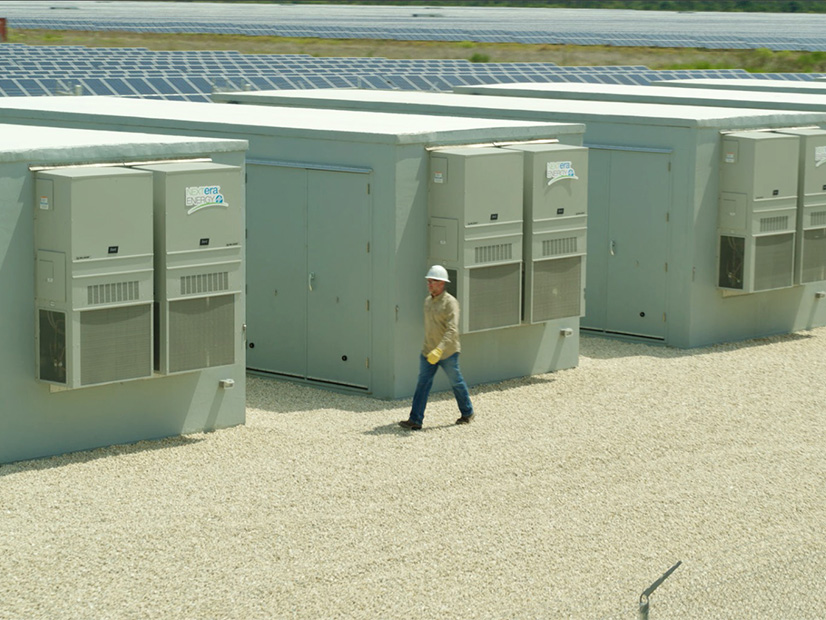Clean energy groups active in MISO told FERC last week that it should rethink its support of a ban on renewable energy in MISO’s ancillary services market because the commission didn’t consider hybrid resources when it made its decision.
The Solar Energy Industries Association, American Clean Power Association, Clean Grid Alliance, Natural Resources Defense Council, Fresh Energy and Sierra Club are seeking a limited rehearing of FERC’s prohibition on renewable energy furnishing ramping needs (ER23-1195-001).
The groups said FERC’s authorization of MISO’s embargo is faulty because it doesn’t explain where hybrid resources — combinations of renewable energy and energy storage — factor into the ban.
FERC this year allowed MISO to exclude renewable resources from providing ramping capability and rejected a challenge from SEIA on the RTO’s practice of precluding renewable resources from providing ancillary services in its markets. (See FERC: MISO Can Ban Intermittent Resources from Providing Ramp and FERC Blocks Solar Group’s Contest of MISO Ban on Renewable Ancillary Services.) In both cases, FERC said renewables are almost never the most economic choice to supply operating reserves because they’re often trapped behind already binding transmission constraints, rendering their output undeliverable.
But the clean energy groups argued that hybrids, unlike standalone renewable resources, are “fundamentally different” in terms of operations and economics.
“Storage paired with renewable resources can relieve congestion and have flexibility that renewables alone do not possess. Because of these differences, the rationale and evidence that MISO provided in support of its prohibition do not apply to hybrids,” they said.
The groups suggested MISO eschew a “blanket prohibition” and, at a minimum, allow hybrid participation in the ancillary services market on a one-year temporary basis with the option to reevaluate. They said MISO used the same open-ended, one-year approach when it allowed intermittent resources into its energy market years ago. They said the same approach “is appropriate to deploy here specifically to hybrids.”


